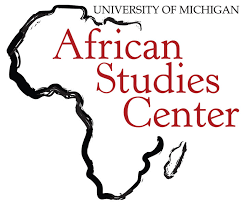Consultant needed for End of Farmers Network Program 3 (FNP 3) Project Evaluation- Build Africa Kenya
Terms of Reference: End of FNP 3 Project Evaluation
- Background
1.1 Background to Build Africa Kenya
Build Africa Kenya is an international NGO and affiliated to Street Child- UK. It aims to improve the quality of education and support livelihoods by developing the capacity of communities. Build Africa Kenya has worked with communities stretching across several regions in Kenya enabling school communities to improve the quality of education they provide for their children. We believe in the power of Education to eradicate poverty. We work to provide children the education they need to fight the inequalities and barriers that stand in their way. Find Build Africa and Street Child on: https://build-africakenya.org/ and https://www.street-child.co.uk
2. Project Description
The Farmer’s Network Project 3 has been implemented by Build Africa Kenya between January 2020 and runs till March 2022 across the Elburgon and Gilgil areas of Nakuru County, Kenya.
The general approach to the project was threefold:
a) Activities to improve the capacity of farmers to establish a variety of farming activities , manage income and expenditures built and engage in savings
b) Activities to enable farmers plan their farming activities and use structures such as the CBO to achieve economies of scale and create safeguards for the farmers
c) Activities to support strengthen the CBOs as a unit of resource mobilization that will enable take over and sustain the project activities
2.1. Intended project goal
Project Goal: 3000 Farmers and their families have the skills to improve their economic and food security, increased income and focus on their farming as Agri-Business that supports their children’s education.
2.2. Intended objectives and outcomes
The Farmer’s Network Project 3 (FNP 3) was designed to deliver on three key outcomes:
- 3,000 farmers in Nakuru County can manage fluctuating, seasonal income and better manage their household expenses and labour needs
- 3,000 farmers in Nakuru County have increased produce quality and quantity, are storing produce for better economic and food security for themselves and their children as well as leveraging economies of scale within their CBOs for both marketing as well as Micro Finance Access.
- 3,000 farmers in Nakuru County are using their new resources to support their children’s education in the home, saving and reinvesting in their Agri-Business to break the poverty cycle.
2.3. Specific Project Objectives
By the end of the 2 year project, it was envisaged that the 3000 farmers will be able to achieve the following:
- Plan their farming activities from input selection, pest and diseases control, harvesting/post harvesting management of produce and marketing.
- Use structures such as the CBO to achieve economies of scale, negotiate better prices, avoid sell by the gate and embrace group dynamics therefore creating safeguards from exploitation by middlemen.
- Keep proper farm records that enable them to manage their income; working out what to sell, what to store for food, when, how and who to sell to and at what price.
- Establish a variety of farming activities (crop and livestock) that cushions them from extremities and vagaries of weather, thus mitigating financial risks and ensuring they are not exposed should rains fail. This will also ensure they are never in a rush to sell during glut season.
- Strengthen the CBOs as a unit of resource mobilization, learning and dissemination of ideas, engage with stakeholders and above all, protect members from exploitation by middlemen and other actors within the farming industry.
- Contribute and participate in the education of their children effectively though ensuring food security at home, managing health and developmental needs of children, provision of learning materials required at school as well as payment of levies and safeguard children from any barriers that may hinder their education.
- Develop the requisite skills that will enable take over and sustain the project activities that will lead to economic emancipation of the community into the future
3. Evaluation purpose, use and evaluation questions
The purpose of the evaluation is to develop evidence-based findings on the extent to which the Farmer’s Network Project 3 met the intended outcomes of supporting farmers and their families to have the requisite skills to improve their economic and food security, increase their income and focus on their farming as Agri-Business to supports their children’s education. The evaluation is also tasked with generating learning to inform future design and implementation of livelihoods projects at Build Africa Kenya.
The end of project evaluation has two main objectives: to investigate the key evaluation questions and to generate learning to provide recommendations that can inform future project design and implementation.
The key evaluation questions are:
a) To what extent have the FNP 3 outcomes been achieved?
b) To what extent has FNP 3 made significant contributions to any change in the participant’s lives?
c) To what extent has FNP 3 contributed towards the education of the participants’ children?
The findings, learning and recommendations from the evaluation will be used to report on the effect of the project to multiple Build Africa Kenya/Street Child donors and stakeholders, and will also be used to inform and support future project design and implementation of interventions.
4. Build Africa Kenya Evaluation Quality Standards
Build Africa Kenya works towards meeting evaluation quality standards in line with the OECD Development Assistance Committee (DAC) criteria for evaluating development assistance, combined with the BOND Evidence Principles. The standards provide guidance to the standards that Build Africa Kenya and partners should seek to meet in conducting evaluations, including data collection.
The BOND Evidence Principles specifically focus on the quality of evidence within an evaluation. The standards are as follows:
- Voice and Inclusion: We present beneficiaries’ views on the effects of the intervention, and identify who has been affected and how
- Appropriateness: We use methods that are justifiable given the nature of the intervention and the purpose of the assessment
- Triangulation: We make conclusions about the intervention’s effects by using a mix of methods, data sources, and perspectives
- Contribution: We can show how change happened and explain how we contributed to it
- Transparency: We are open about the data sources and methods used, the results achieved, and the strengths and limitations of the evidence
Build Africa Kenya must aim to achieve the content and quality of evidence as outlined above.
5. Evaluation approach and methodology
The evaluation has adopted a design that seeks to assess the effectiveness of the project in reaching the outcomes and a form of contribution analysis approach to explore the influence of the project on the outcomes.
The evaluation will employ a mixed-methods approach that consists of a desk based document review of project literature and records, capturing quantitative data through a questionnaire and qualitative data through the capture of most significant change stories and Rapid Rural Appraisal style Focus Group
Discussions. This approach will contribute towards a triangulated wealth of comprehensive data that refers directly to the results based management requirements of the log frame and also encourages significant participant participation in evaluating the project. This participatory component of the approach will support the evaluation to develop findings that are evidence-based in the experiences, perceptions and lives of participants.
6. Study Methodology:
Desk Review & consultation within Build Africa Kenya.
- Review of project documents including literature relating to project design and implementation including theory of change, log frame etc.
- Review of project records and monitoring data
- Discussion within Build Africa Kenya around the evaluation design
Development of data tools
- Based on the evaluation design (approach, methodology and key evaluation questions), the necessary data collection tools should be developed. These will include:
Tool 1: Semi-structured questionnaire for farmers
Tool 2: Most Significant Change guide for farmers
Tool 3: Rapid Rural Appraisal/Focus Group Discussion for farmers
Tool 4: Key informant interviews
Support to research/data collection team
- Build Africa Kenya will provide guidance to the independent research team on the evaluation purpose, design and plan
- Build Africa Kenya will be responsible for introducing the independent research team to target population who are then tasked with piloting the tools in an internal training and field data collection
- Collect the data required to answer the key evaluation questions. The data collection will include:
Semi-structured questionnaire: The research team will conduct 380 semi-structured questionnaires with farmers who are members of a Farmers’ Network through the project. The tool will include questions relating directly to the log frame outcomes and indicators, as well as using the recall approach to gather data to reconstruct a baseline.
Most significant change tool: The research team will conduct 20 most significant change sessions with individual respondents.
Rapid Rural Appraisal/Focus Group Discussion: The research team will conduct 6 RRA/FGDs each with participants totaling a sum of 40 individual respondents in each FGD. These discussions will include discussion and interactive, participatory methods of collecting data.
Key informant interviews with at least 5 Key stakeholders
Data analysis & final report
- Data entry, cleaning and validation conducted by the research team and shared with Build Africa Kenya.
- Data analysis conducted by consultant with consultation with Build Africa Kenya/Street Child.
- The qualitative data will be analyzed using thematic content analysis to identify findings from the Most Significant Change stories and the RRA/FGDs.
- Report write up from all the data collection tools
7. Tasks and deliverables
The required consultancy deliverables are:
- An Inception Report: should be a maximum of 5 pages, produced within 2 working days detailing the methodology; the schedule of activities and the tools for data collection and analysis.
- Draft evaluation Report: This should be logically structured, containing evidence-based findings, conclusions, lessons and recommendations, and should be free of information that is not relevant to the overall analysis. The report should respond in detail to the specific tasks described above and should be a maximum 45 pages including annexes (including the TORs, data collection and analysis tools, List of participants, and any other document relevant to this evaluation study).
- Hard copies of the completed data collection tools – to include completed questionnaires and extensive notes on the qualitative components
- A full and final typed data set in English for both the quantitative and qualitative data collection
- Final detailed evaluation report
- A summarized PowerPoint presentation for sharing with partners and other stakeholders
The consultant will also be responsible for:
- Attending an inception meeting (remotely if required) with Build Africa Kenya staff to be introduced to the project evaluation, and requirements of the data collection exercise
- Confirm a team of data collectors capable of achieving the high quality standards required by the assignment
- Reviewing the data collection tools with key Build Africa Kenya personnel to ensure a thorough understanding of the purpose and content of each tool. Explore the potential for mobile data collection methods and liaise with Build Africa Kenya on the feasibility of this for this exercise.
- A full day of training and a half day of piloting/testing the tools, and practice administering the tools within the data collection team
- Supervising and leading the data collection team to collect high quality data – this will amount to the completion of at least 380 questionnaires, 20 most significant change stories and 6 focus group discussions and at least 5 Key informant interviews (in line with the sample).
- Supervise the data entry into the formats provided to an accurate and high standard – data entry must be conducted by a data entrant that has not participated in the data collection
- Providing the typed raw data to Build Africa Kenya contact staff
Build Africa Kenya will be responsible for:
- Preparing relevant documentation and making it available to the consultant
- Holding an inception meeting (remotely if required) with the consultant to provide background information and to finalize timelines and expectations
- Providing the data collection tools, and data entry format/database with guidance for how to use if necessary
- Respond to any queries or concerns regarding the data collection tools and/or exercise
- BAK to arrange the practice of administering the tools, the logistics for field travel, and to supervise data collection
- BAK to mobilize relevant project communities in advance and to coordinate the field work to ensure that data collection team are able to capture high quality data from relevant sample of informants
- Reviewing the final dataset and enquiring further where necessary
- Making payments for the exercise as agreed in the contract
- Budget and timeline
Please submit a full budget for the Terms of Reference including costs associated with and including:
- Data Collection and Data entry (a team of at least 7 collectors, for duration of exercise including 1 day pre-practice)
- All costs are inclusive of relevant taxes.
In line with the evaluation sampling methodology, it is anticipated that the data will be collected:
- 2 days of data collection tools training, pilot and practice
- 8 days of active data collection in the field and data entry.
- Development of an evaluation report
The data collection team should include a team lead – responsible for managing the exercise, data collection and entry. Similarly, in line with the sampling requirements it is advised that the data collection team should consist of 7 competent candidates capable of administering both quantitative and qualitative data. The lead consultant will take charge of submission of final report and summarised highlights in PowerPoint presentation
8. Skills and qualifications of consultancy team
The data collection support team should consist of candidates who meet the following criteria:
- Demonstrable experience of leading high quality data collection exercises (essential);
- Significant skills and experience in quantitative data collection and analysis (essential);
- Experience of collecting, analysing and synthesising qualitative data using a rigorous approach (essential);
- Excellent communication and facilitation skills (essential);
- Experience of overseeing and training data collectors, including providing a quality assurance function (essential);
- Able to reliably access the Internet, as well as relevant national policy/planning documents and surveys (essential);
- Experience of working in Kenya or East Africa (essential);
- Fluent in local language in both writing and speaking (essential)
- Fluent English in both writing and speaking (essential);
- Willingness to familiarise self with, and sign up to abiding by, Build Africa’s Child Protection Policy (essential).
- Experience of (access to) mobile data collection methods (desirable)
- Evident report writing skills
- Child Safeguarding
It is essential that the successful applicant familiarise self with, and sign up to abiding by, Build Africa Kenya/ Street Child’s Safeguarding Policy.
We reserve the right to conduct background checks for all shortlisted applicants in line with our child safeguarding policy. This may include collecting references from past employers or commissioning organisations.
Applications should be sent to hr@build-africakenya.org on or before 20th April 2022.
Build Africa Kenya will evaluate the proposals and award the contract based on technical and financial feasibility. BAK reserves the right to accepts or reject any proposal received without offering an explanation and is not bound to accept the lowest or the highest bidder








